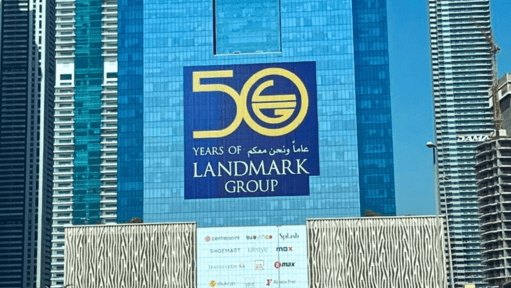
Dubai Unveils Middle East’s First Textile Recycling Facility to Lead Sustainability Efforts
Landmark Group Pioneers Circularity in Textiles, Aligned with UAE’s Environmental Vision
The UAE has taken a major step toward sustainability in the textile industry with the launch of the Middle East's first textile recycling facility at Dubai World Central. Spearheaded by the Landmark Group, the initiative aims to promote circularity by giving used textiles a second life, a move that aligns with the UAE's commitment to environmental protection and sustainable development.
The Facility and Its Vision
Landmark Group’s textile recycling facility processes used fabrics from fashion and home products, converting them into fibers that can be repurposed. These fibers are shipped to manufacturing units to create new products, including apparel and home furnishings.
The initiative builds on the group's takeback programs launched last year across its retail brands, such as Centrepoint, Max Fashion, Home Centre, and Home Box. These programs encourage customers to donate pre-loved garments and textiles, regardless of brand, in exchange for rewards.
Renuka Jagtiani, Chairwoman of Landmark Group, emphasized the importance of collaboration in sustainability efforts. “Protecting our environment is a shared responsibility that cannot be achieved in isolation,” she said. “Our recycling facility is a crucial step in the region’s fashion and textile industry toward closing the loop on product lifecycles and achieving circularity.”
Laws Supporting the UAE Textile Industry
The UAE has established a robust legal framework to support sustainable practices in industries, including textiles. These laws aim to attract investments, promote innovation, and ensure compliance with international standards for environmental and social responsibility.
- UAE Green Agenda 2030:
The UAE's Green Agenda emphasizes sustainable development across sectors, including textiles. The government encourages businesses to adopt practices that reduce environmental impact and promote circular economies. - Federal Law No. 12 of 2018 on Integrated Waste Management:
This law mandates businesses to manage waste responsibly, including recycling. Textile recycling initiatives like Landmark’s facility align with this legislation by diverting waste from landfills and repurposing materials. - Extended Producer Responsibility (EPR):
Though not specific to textiles, the UAE's EPR framework encourages manufacturers and retailers to take responsibility for their products throughout their lifecycle, including disposal and recycling. Landmark’s takeback programs exemplify this principle. - Free Zone Regulations:
Free zones like Dubai World Central offer incentives for businesses in the textile industry, including tax exemptions, streamlined business setup processes, and access to advanced logistics. These benefits make it an ideal location for initiatives like Landmark’s recycling facility. - Dubai Municipality Guidelines:
The municipality enforces regulations on waste disposal and recycling, ensuring compliance with sustainability goals. Textile facilities must adhere to these guidelines to operate legally and contribute to the emirate’s environmental objectives. - UAE Net Zero by 2050 Strategy:
As part of its broader climate goals, the UAE promotes innovation in industries to reduce carbon emissions. The textile recycling facility supports this vision by minimizing waste and conserving resources.
Encouraging Circularity in the Textile Industry
The textile industry is a significant contributor to global waste and environmental degradation. Initiatives like Landmark Group's recycling facility demonstrate how businesses can lead the way in reducing the ecological footprint of fashion and home goods.
With legal frameworks that incentivize sustainability, the UAE is poised to become a regional hub for environmentally responsible practices in textiles. By fostering collaboration between businesses, governments, and consumers, the country is setting a precedent for other regions to follow.
Conclusion
The launch of the textile recycling facility marks a milestone in the UAE's journey toward sustainability in the textile industry. Supported by progressive laws and initiatives, this project not only helps reduce waste but also drives innovation and circularity. As businesses like Landmark Group continue to invest in sustainable solutions, the UAE is paving the way for a greener future in the fashion and textile sectors.
For any enquiries or information, contact ask@tlr.ae or call us on +971 52 644 3004. Follow The Law Reporters on WhatsApp Channels